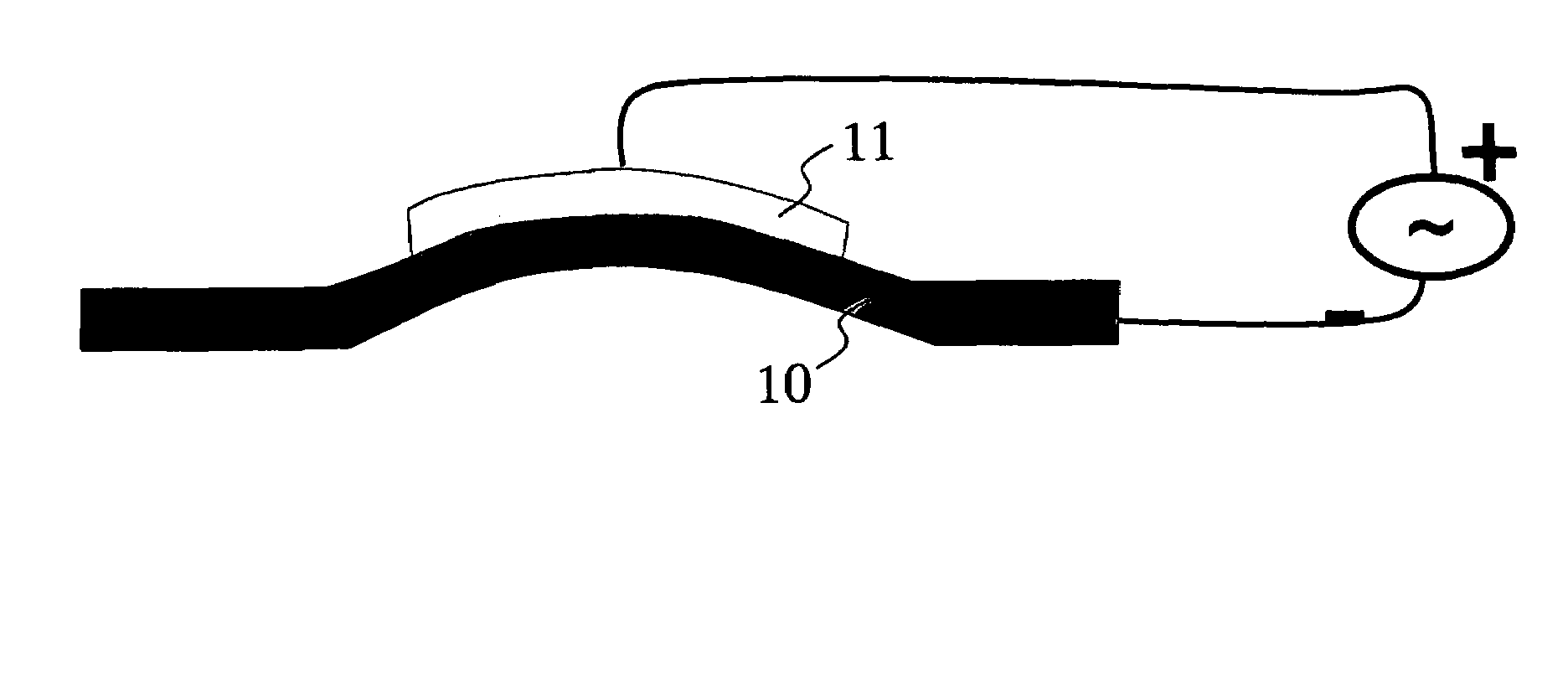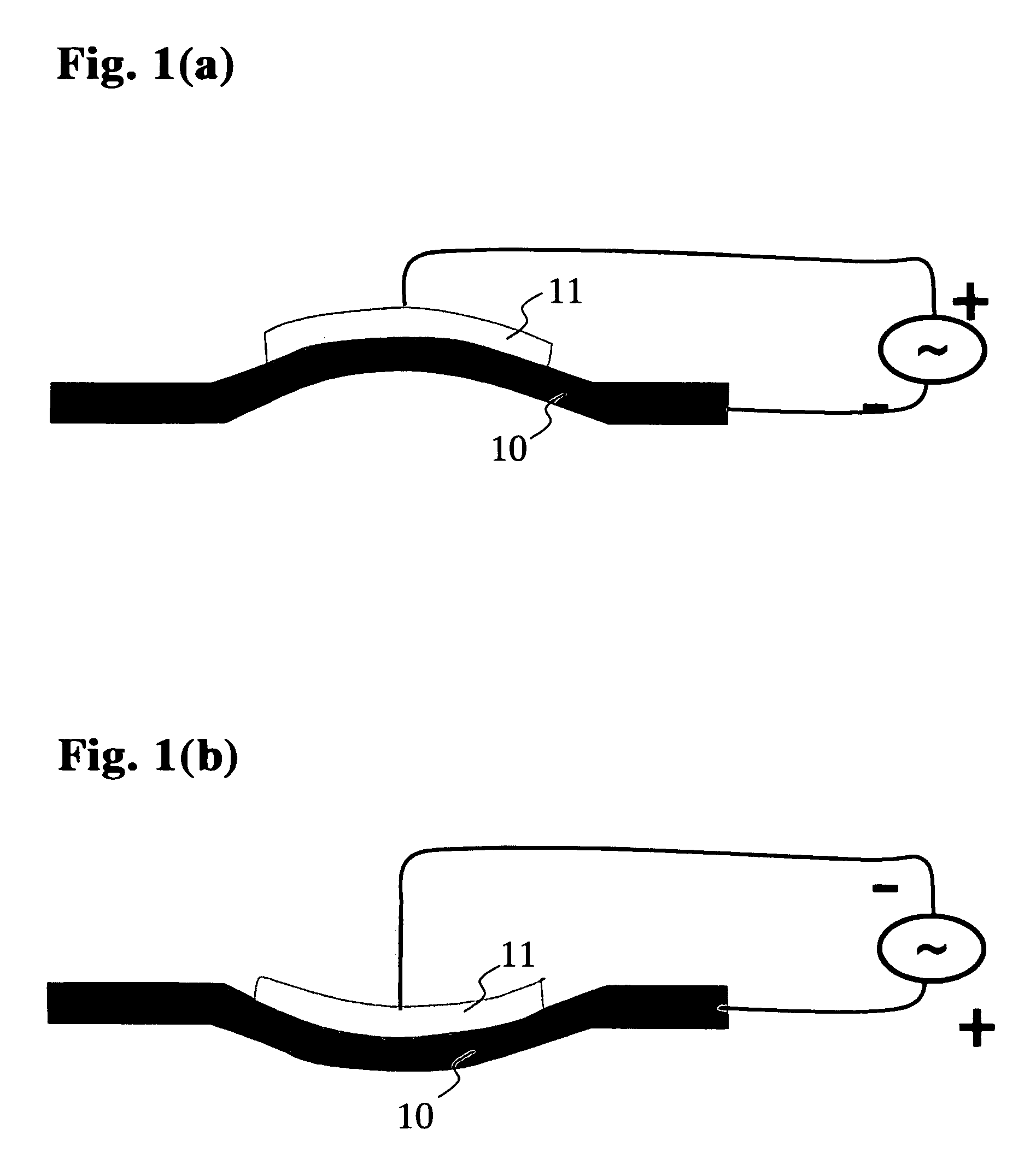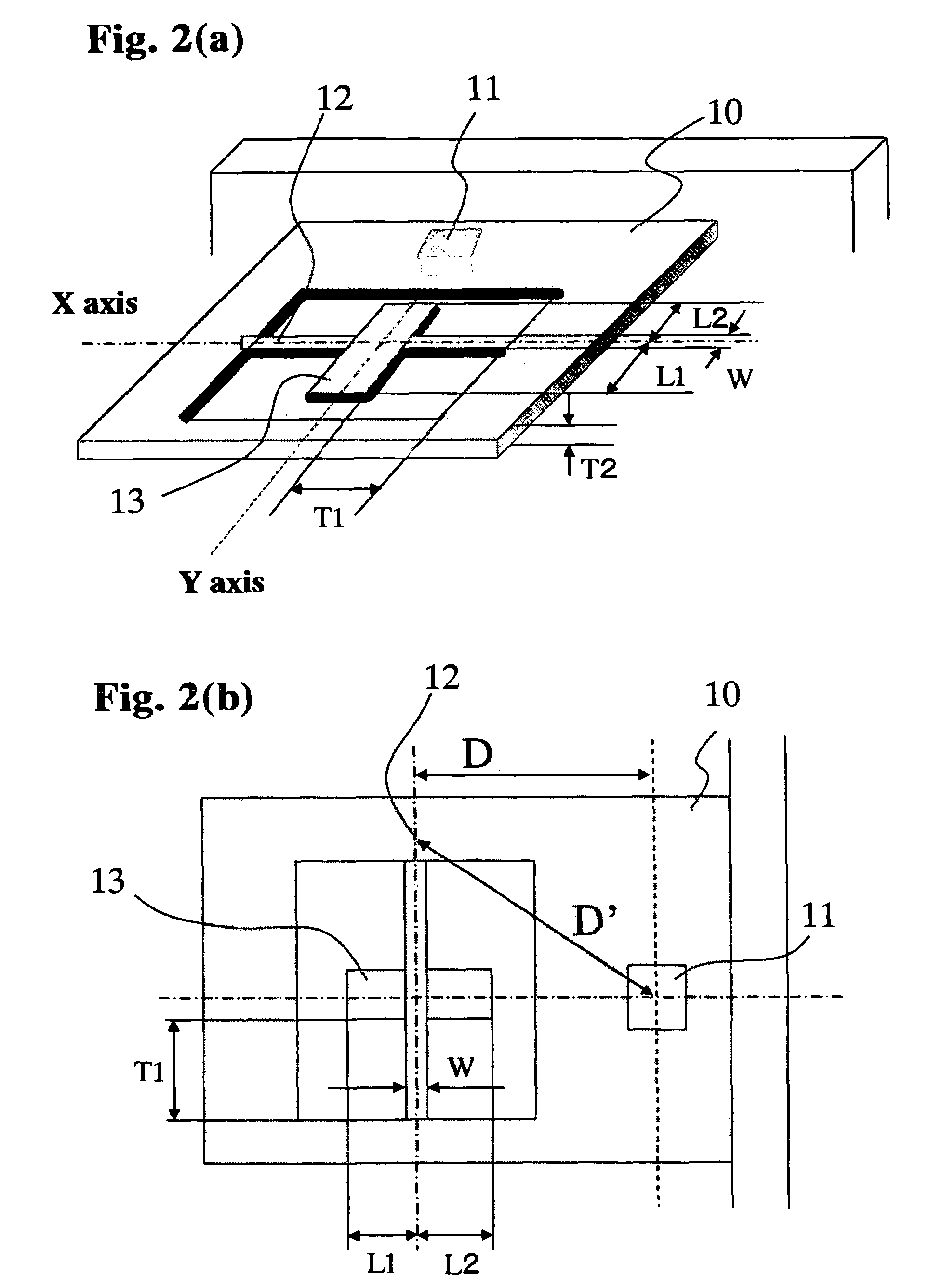Light-beam scanning device
a scanning device and beam technology, applied in the field of light beam scanning devices, can solve the problems of increasing factor causing failures, reducing the scanning area and/or reducing the scanning area and/or thickness. , to achieve the effect of facilitating the reduction of the area and/or thickness of the light beam scanning device, reducing power consumption, and increasing flexibility
- Summary
- Abstract
- Description
- Claims
- Application Information
AI Technical Summary
Benefits of technology
Problems solved by technology
Method used
Image
Examples
first embodiment
[0093]FIG. 6 is a perspective view of a light-beam scanning device according to a first exemplary, non-limiting embodiment of the present invention.
[0094]A base plate 10 is fabricated by subjecting a metal material having a substantially square shape with a thickness of about 30 to 50 μm to an etch process or a press working to form the plate material so as to be partly removed while leaving a torsion beam portion 12 and a mirror portion 13 therein. Only one end of the base plate 10 is supported by a support member 16 in a cantilevered manner.
[0095]The base plate 10 is made of a metal material, such as SUS 304 having electrical conductivity or SUS 430 having electrical conductivity and low thermal expansion coefficient, so as to eliminate the need for forming a lower electrode to facilitate reduction in size and simplification in structure of the light-beam scanning device.
[0096]The mirror portion 13 is formed to have a length l1 of about 1.1 mm and a width b1 of about 100 to 500 μm...
second embodiment
[0119]FIGS. 11(a) and 11(b) show a light-beam scanning device according to a second exemplary, non-limiting embodiment of the present invention, which comprises a base plate 10, a piezoelectric film 11, a torsion beam portion 12 and a mirror portion 13. FIGS. 11(a) and 11(b) are, respectively, a perspective view and a top plan view of the light-beam scanning device.
[0120]Except that a portion of a free end of the base plate 10 is cut out to form a pair of opposite lateral portions 19, 19 each supporting a corresponding one of opposite ends of the torsion beam portion 12, in a cantilever configuration, the light-beam scanning device illustrated in FIGS. 11(a) and 11(b) has the same structure as that in the first embodiment.
[0121]As shown in FIG. 12(a), the device in FIGS. 11(a) and 11(b) is designed such that L1=L2, and form a minimum amplitude Amin of vibrations in the base plate (node of a plate wave) at a position slightly deviated from an axis X-X of the torsion beam portion 12.
[...
PUM
 Login to View More
Login to View More Abstract
Description
Claims
Application Information
 Login to View More
Login to View More - R&D
- Intellectual Property
- Life Sciences
- Materials
- Tech Scout
- Unparalleled Data Quality
- Higher Quality Content
- 60% Fewer Hallucinations
Browse by: Latest US Patents, China's latest patents, Technical Efficacy Thesaurus, Application Domain, Technology Topic, Popular Technical Reports.
© 2025 PatSnap. All rights reserved.Legal|Privacy policy|Modern Slavery Act Transparency Statement|Sitemap|About US| Contact US: help@patsnap.com



